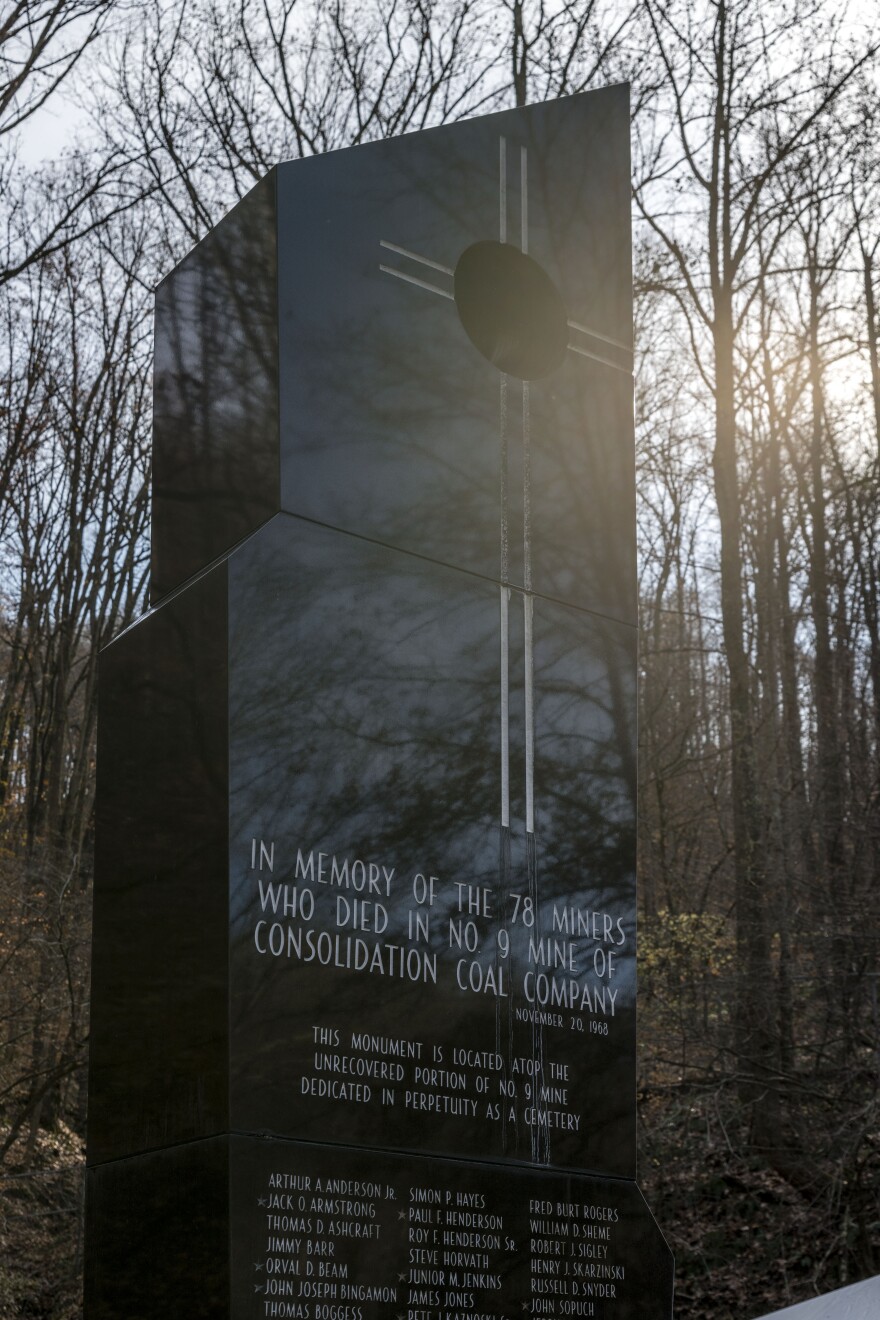On Nov. 20, 1968, an underground explosion ripped through a West Virginia coal mine and killed 78 miners. Fifty years later, the local community still comes together the Sunday before the anniversary of the Farmington Mine Disaster to remember the men lost that day.
Following the tragedy in Farmington in 1968, the widows of the families demanded safer working conditions and action from Congress. The disaster was one of the instrumental forces that led Congress to pass the1969 Federal Mine Safety Law, also referred to as the Coal Act.

This legislation was more comprehensive than any previous mine safety law. The Coal Act required two annual inspections of every surface coal mine and four at every underground coal mine. It also gave federal inspectors more authority in enforcing mine safety violations by issuing fines.
And while mine fatalities haven’t stopped completely since the 1969 legislation, the number of deaths of miners has decreased dramatically. And with each passing decade, mine disasters have killed fewer men.
In 1968, 311 Americans lost their lives in the mines. By 1980, that number had dropped by more than half.
In 2017, there were 15.
On the morning of the explosion, Bob Campione was at school, beginning his day as a student teacher. Bill Evans, the editor of the Fairmont Times, called him and asked him to come to the mine site. Campione, a photographer at the paper for five years, spent the next 10 days at the mine site. He spoke to oral historian Francene Kirk about his memories of the event.
In 2008, Bonnie Stewart was working at West Virginia University as a journalism professor when she started researching the mine disaster. She wrote a book about what she found, called “No.9: The 1968 Farmington Mine Disaster.”

Nobody at the state or federal level ever tried to file criminal charges against Consolidation Coal for actions relating to the Farmington Mine Disaster. In her book about the explosion, Stewart wrote:
“At the time, the federal government had no power to prosecute the company. The state of West Virginia did have the power, but did not use it. Given the sworn testimony taken during the No. 9 hearings and the physical evidence discovered during nine years of recovery efforts, both the state and federal governments easily could have assigned fault for the disaster. Neither chose to do so.”
In late 1982, the widows of the Farmington disaster reached an agreement with Consol, and their original lawsuit was dismissed.
In 2008, Stewart discovered a memo, written in 1970 by federal mine inspector Larry Layne, that suggested a security alarm inside the mine had been disabled. The alarm should have warned miners that the mine’s ventilation system wasn’t working. If it had been working, the miners might not have died. This episode includes an interview with Layne.
Today, the family members of the 78 miners who died have brought a new lawsuit against the company (now owned by Murray Energy) for the its involvement in the Farmington Mine Disaster, 50 years ago, based on new evidence.
The coal company argued that there was a two year statute of limitations, and the suit was dismissed. A federal appeals court has asked the West Virginia Supreme Court of Appeals to help determine if the families can sue. A final decision has not been made.
Read more at 100 Days in Appalachia
NPR also ran this story: A Look Back at the Farmington Mine Disaster
Listen on SoundCloud.
A special thanks to Molly Born, for her work on this episode, and to Francene Kirk who provided us the interviews she collected from Rev. Richard Boyer and Bob Campione.
Roxy Todd is our producer. Eric Douglas is our associate producer. Our executive producer is Jesse Wright, and he also edited our show this week. Our audio mixer is Patrick Stephens. Molly Born is our web editor. You can find us online on Twitter @InAppalachia.
You can also send us an email to Inside Appalachia@wvpublic dot org or address your letters to Inside Appalachia at West Virginia Public Broadcasting, 600 Capitol St., Charleston, W.Va., 25301.



